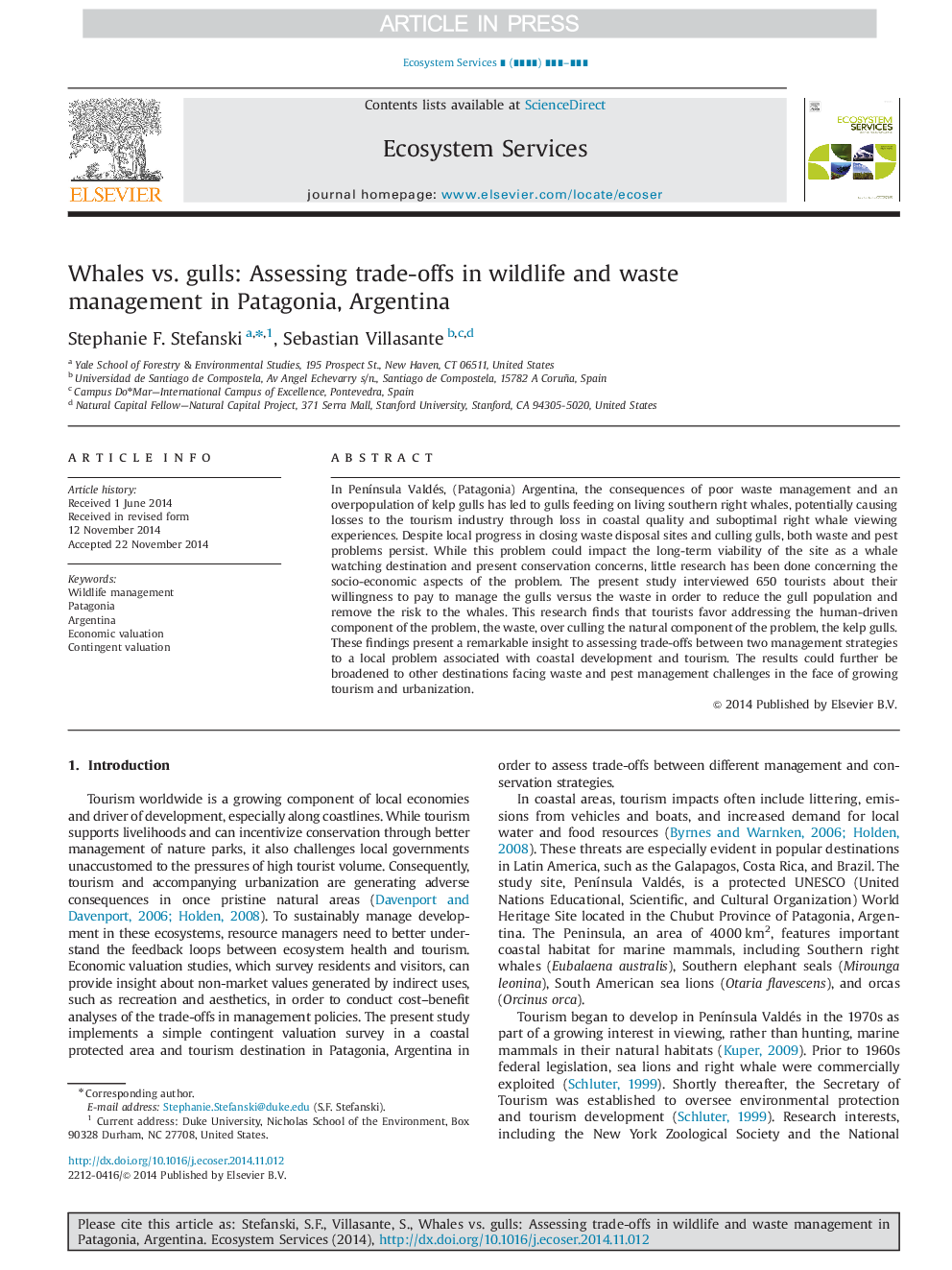| Article ID | Journal | Published Year | Pages | File Type |
|---|---|---|---|---|
| 6556688 | Ecosystem Services | 2015 | 12 Pages |
Abstract
In PenÃnsula Valdés, (Patagonia) Argentina, the consequences of poor waste management and an overpopulation of kelp gulls has led to gulls feeding on living southern right whales, potentially causing losses to the tourism industry through loss in coastal quality and suboptimal right whale viewing experiences. Despite local progress in closing waste disposal sites and culling gulls, both waste and pest problems persist. While this problem could impact the long-term viability of the site as a whale watching destination and present conservation concerns, little research has been done concerning the socio-economic aspects of the problem. The present study interviewed 650 tourists about their willingness to pay to manage the gulls versus the waste in order to reduce the gull population and remove the risk to the whales. This research finds that tourists favor addressing the human-driven component of the problem, the waste, over culling the natural component of the problem, the kelp gulls. These findings present a remarkable insight to assessing trade-offs between two management strategies to a local problem associated with coastal development and tourism. The results could further be broadened to other destinations facing waste and pest management challenges in the face of growing tourism and urbanization.
Related Topics
Life Sciences
Agricultural and Biological Sciences
Agricultural and Biological Sciences (General)
Authors
Stephanie F. Stefanski, Sebastian Villasante,
